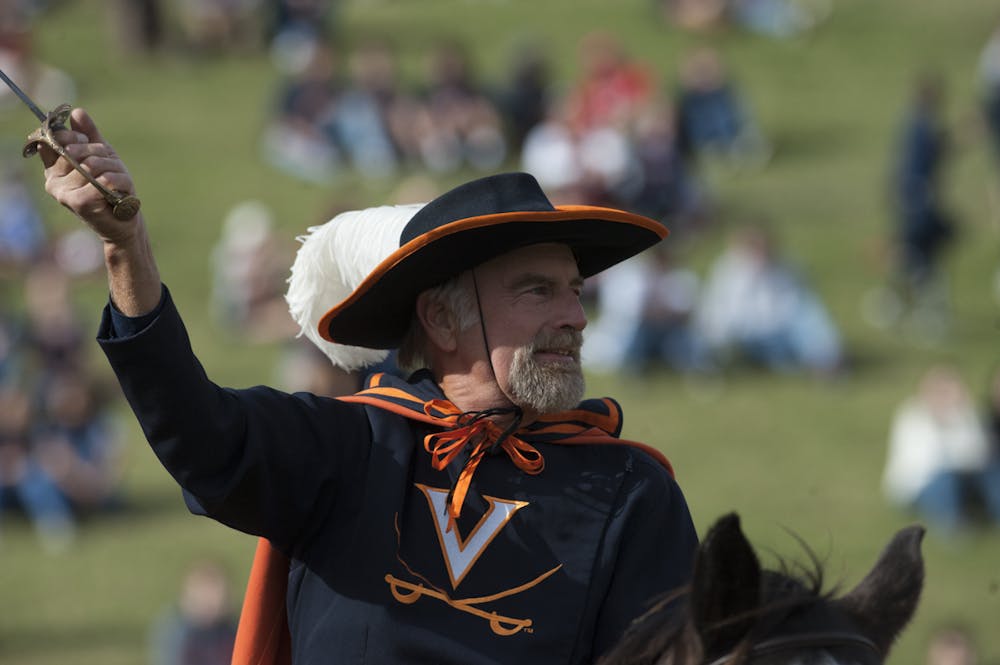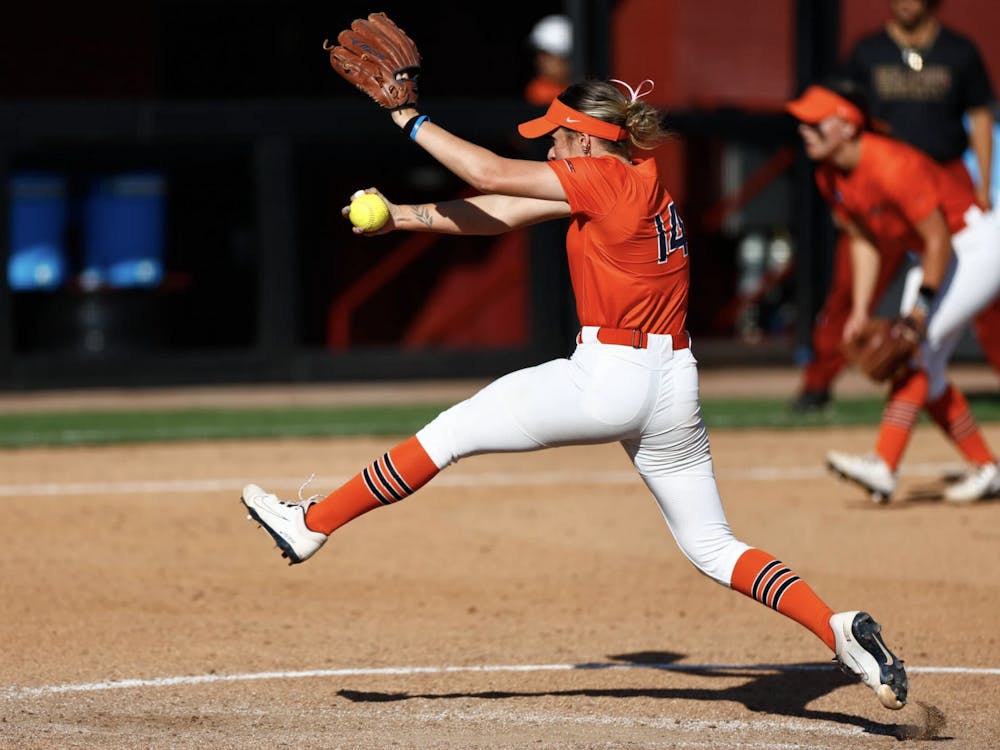For students in attendance at a University sporting event, Cav Man often appears to be the epitome of University spirit. But he hasn't always been the icon he is today.
Before Cav Man, the University's mascots included a slew of different dogs, a Cav Man-esque "Cavalier" embodied by members of the polo team and the highly controversial "Hoo" — a fuzzy, odd-looking creature.
While modern Virginia mascots are recognized by their flamboyant costumes and animated appearance, the earlier mascots were actually alive.
Nicknamed the “King of Canines” by The Cavalier Daily, Beta — a mixed-breed dog — served as the University’s first mascot during the 1920s and 1930s. Think of him as the University’s very first CavPup. The Beta Theta Pi fraternity adopted the dog, and he lived at their house on Rugby Road.
Like a true University student, Beta took his academics seriously — his name was even called regularly during attendance for a lecture on Plato held in Cabell Hall. However, Beta always made time to support the Cavaliers at sporting events and sometimes even attended away games.
Over one Easter weekend, he traveled to the Georgia with students for a football game and didn’t return — it is unclear whether he was left behind or abducted.
Two weeks later, the Beta Theta Pi fraternity brothers claimed they heard a scratch at the back door and, once they opened it, were met by Beta. To this day, it is unknown how the dog found his way back to Charlottesville.
Beta was fatally struck by an automobile and broke his back April 6, 1939. A student carried him to the local veterinarian, who was unable to save the dog.
Beta’s funeral was held that Friday. Followed by a procession of an estimated 1,000 mourners, a hearse transported the dog from the Beta Theta Pi fraternity house to his final resting place — the University Cemetery.
“There are many one man dogs, many one family dogs, but Beta was a whole University’s Dog,” Dean Lewis said in 1939 in the eulogy.
When Beta’s casket was lowered, students joined hands and sang the “Good Ol’ Song.”
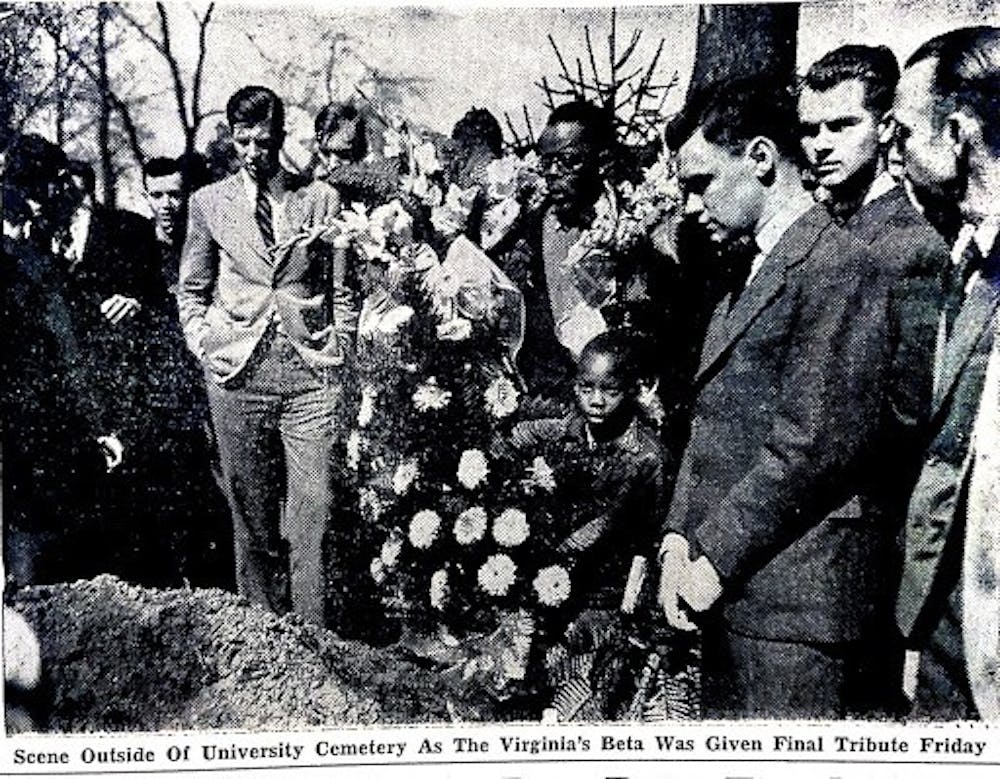
Beta was succeeded by a dog named for his shiny coat of fur — Seal. Seal was welcomed at different sororities and fraternities but typically stayed at the home of Dr. Charles Frankel, the football team’s doctor.
The mascot is perhaps best remembered for urinating on a cheerleader’s megaphone at a football game against Pennsylvania in 1949.
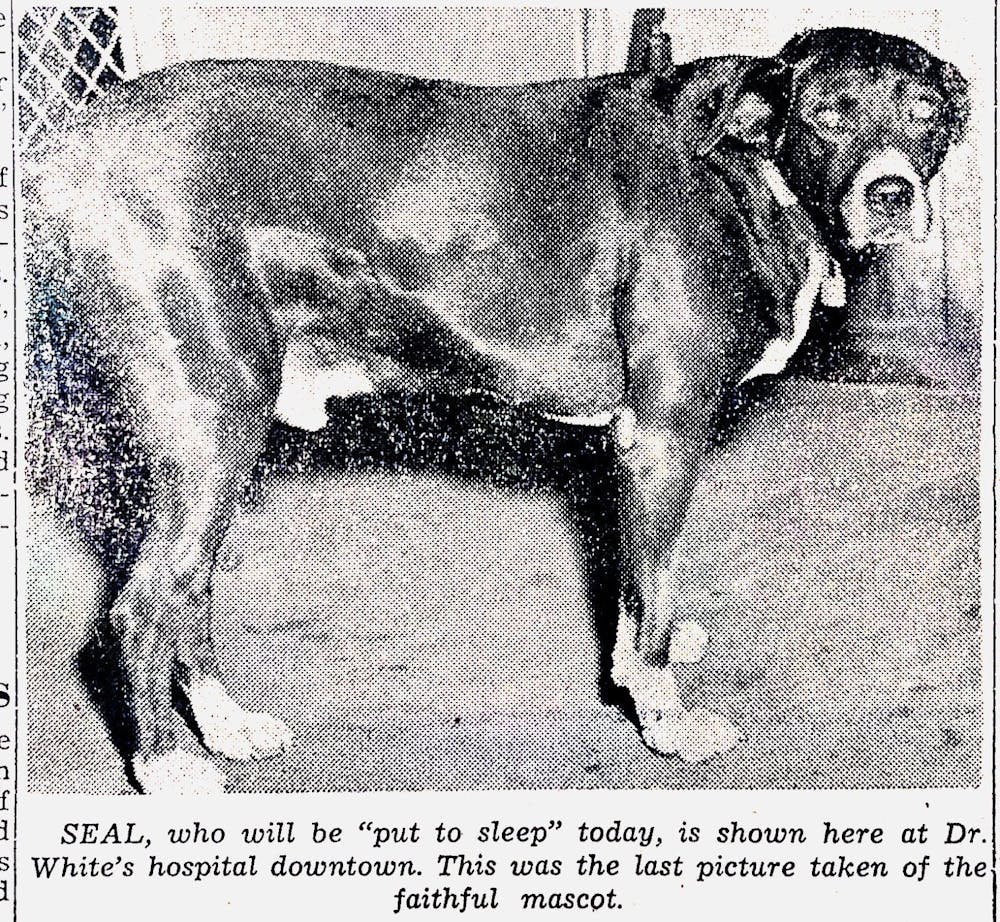
In 1953, Seal suffered a rupture — due to his old age, it was unlikely that he would survive surgery. Veterinarians decided that Seal should be put to sleep to prevent further suffering.
Seal was put to rest Dec. 11, 1953. The V-Club, an organization for members of the University’s varsity sports, was in charge of organizing his funeral, led by football co-captain Pete Potter.
Captains of the University’s 12 varsity teams served as pallbearers followed by a procession of an estimated 2,000 people.
“In true Jeffersonian tradition, Seal came from an obscure and questionable beginning and rose to the highest place of esteem at this University,” Frankel said in the eulogy.
Just as with Beta’s funeral, attendees joined hands and sang the “Good Ol’ Song” when the coffin was lowered. Beta and Seal are buried beside each other in the University Cemetery overlooking where Gilmer Hall stands today.
Since Seal’s death, no other dog has been allowed to serve as the University mascot, though one has tried — Grizzle.
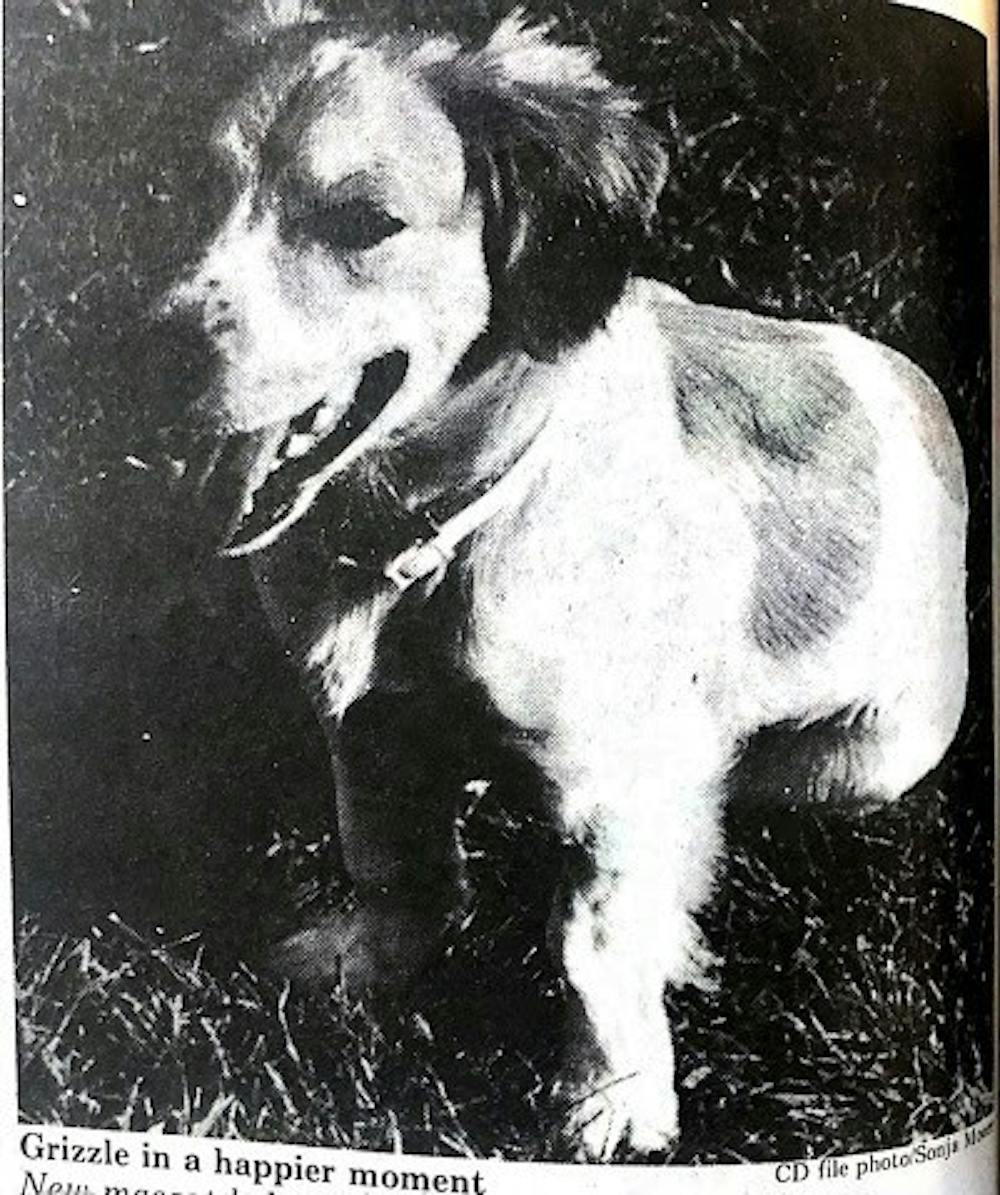
Grizzle was donated to the University by a student, but the Beta Theta Pi fraternity — who had once owned Beta — volunteered to take care of the dog. Grizzle was intended to be the University’s mascot, but a lack of communication between the fraternity and the athletic department prevented this from ever happening.
Today, students cheer at football games when the Cavalier rides into the stadium. The first documented Cavalier mascot appeared in a football game against Harvard in 1947. Starting in 1963, Virginia Polo Club members served as riders for 11 years until Scott Stadium acquired AstroTurf.
However, the mascot wasn’t always accepted by students — a photo of the Cavalier taken in 1984 refers to the mascot as “defunct, but the infamous mascot resurfaced soon after.
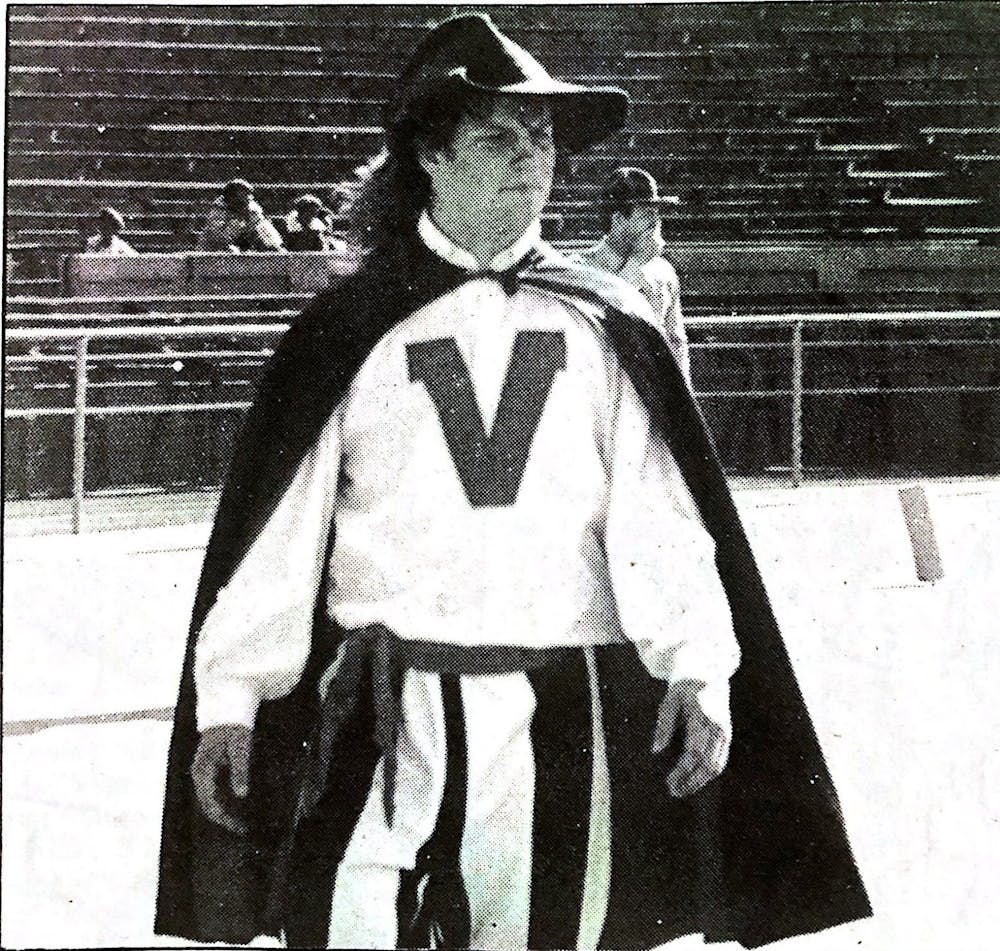
The horse — nicknamed Sabre — is now ridden by Charlottesville native Kim Kirschnick. The mascot remains a part of Virginia home football games today.
The ‘Hoo debuted at the 1983 home football opener against Duke and failed to receive a warm welcome. According to Virginia Magazine, fans threw ice cubes at it, and fraternity brothers even removed the mascot’s tongue.
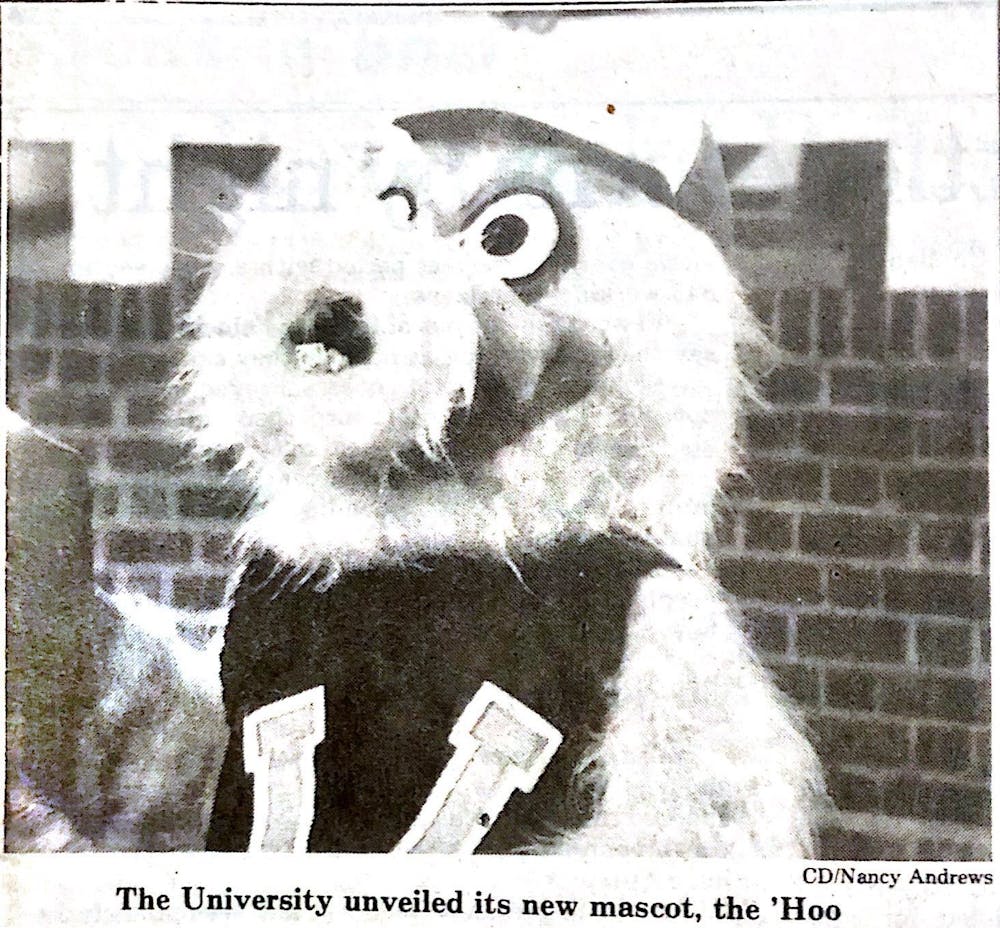
Students were also dissatisfied with then-Virginia Athletic Director Richard Schultz and the athletic department’s creation.
“The ‘Hoo is a video game reject,” the Cavalier Daily wrote in a 1983 article. “It tried out for Ms. Pacman and didn’t make the first cut … But there still might be hope. Pep band members have suggested placing a vacuum attachment on the creature’s nose so it could at least clean up the field during halftime.”
The controversy surrounding the ‘Hoo reached Student Council, which received calls and letters of complaint regarding the mascot. John Farmer, College of Arts and Sciences representative, called for an end to the mascot’s career.
“[The] ‘Hoo does not fit in with the University’s image,” Farmer said in 1984.
After an overwhelming amount of criticism, Schultz relented and agreed to terminate the mascot and its association with the University. Schultz also met with Student Council and agreed that the athletic department and Student Council would work together to create a new mascot.
“The ‘Hoo can die a sudden death as far as I’m concerned,” Schultz said.
The costumed Cav Man students know and love today was introduced during the 1984 football season. The very first student to serve as the mascot was a second-year biology major, Jeff Stewart, whose portrayal bears many similarities to the version students see today.
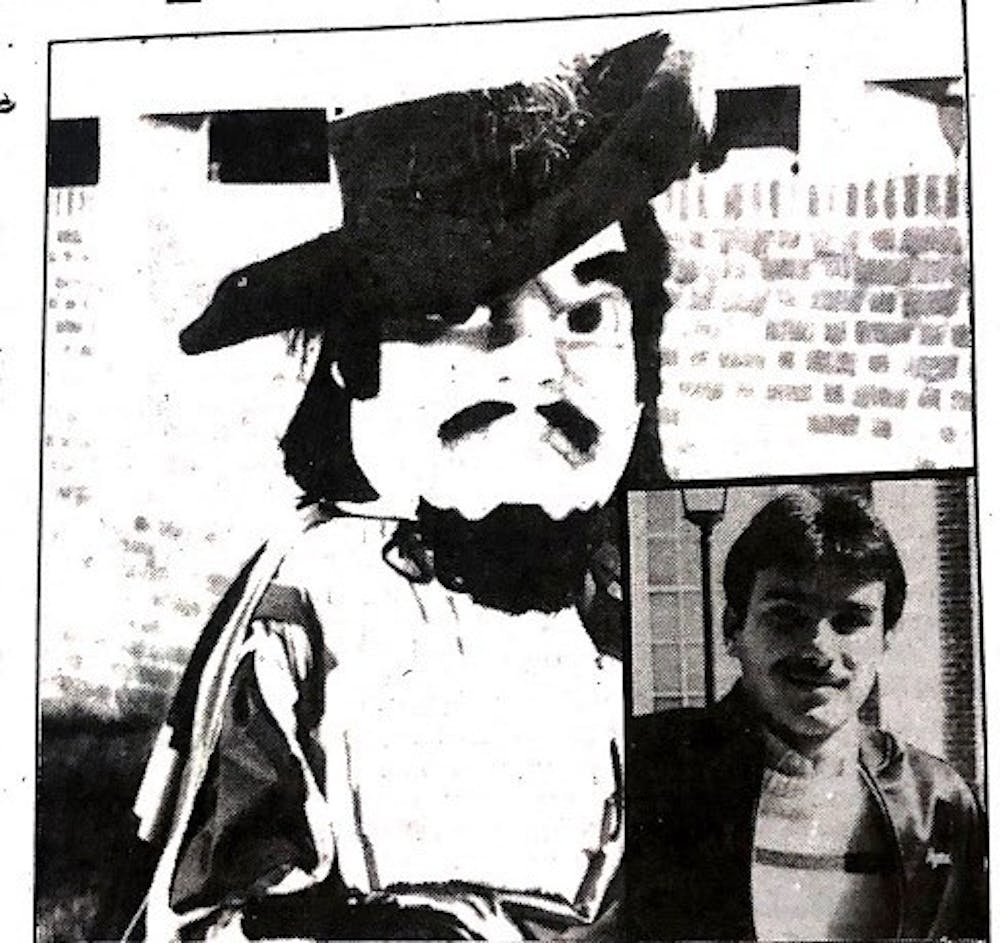
In fact, Cav Man’s iconic walk today takes inspiration from Stewart’s original stride — he called it the “bebop.”
While Cav Man was not initially accepted by the student body, Stewart remained optimistic about the mascot’s future.
“I am still getting used to what I can and should do,” Stewart said. “Gradually I will be better, and the crowd will like me more.”
Over three decades later, that prediction has certainly turned out to be true — Cav Man is a fan favorite of not only students, but the Charlottesville community as well.

